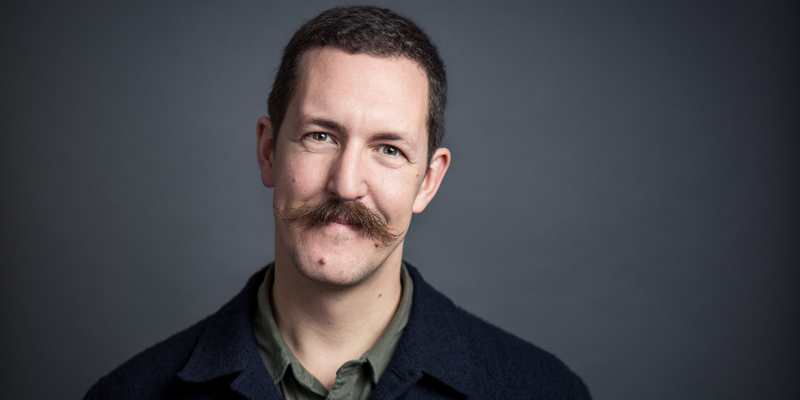
Reading time: 4 Minutes
With famous CEOs and big-name proponents of a shorter working week getting their voices heard, Ben Hammersley finds out whether more time out of the office – with the same amount of work to do – really can be achieved
On the face of it, it’s kind of a classic line for a billionaire who owns a tropical island paradise to say. The sort of statement that, when read on a rainy commute home from another 60-hour week would usually result in the newspaper being tossed aside. But, when Sir Richard Branson opined in a blog post that flexible working, with unlimited holiday time, is the way to achieve happiness and success at work, he wasn’t just talking about senior management. It was about everyone. Further still, according to CNBC, he’s recommending even longer weekends:
“Many people out there would love three-day or even four-day weekends,” he reportedly said. “Everyone would welcome more time to spend with their loved ones, more time to get fit and healthy and more time to explore the world.”
A better balance
Branson’s claim is that the combination of modern technology and a fundamental trust in employees to deliver means that a shorter working week is not only possible, but actually desirable. With the extra free day or two, the employee is able to take care of chores and basic tasks – food shopping, picking up the dry cleaning, going to the post office, that sort of thing – without that impinging on personal and family time. The end result? A happier, healthier, and ultimately more productive workforce. In other words, to get more done, give your employees more time off.
It’s an idea that’s gaining ground – even across the political and management/worker divide. At their annual conference in the summer of 2018, for example, Frances O’Grady, the General Secretary of the association of all of the UK’s trade unions, called for a four-day working week to be implemented globally by law by 2100.
It’s not just theory. Anecdotes of small companies experimenting with a four-day week abound across the internet. Perpetual Guardian, a New Zealand-based trust and wills firm tried it, and offered themselves for study while doing so. Researchers from the University of Auckland and the Auckland University of Technology surveyed the employees afterwards and found that 24 per cent said their work-life balance had improved, and seven per cent saw reduced stress.
Meanwhile, company leadership reported no drop in productivity. They were paying the same wages, and getting the same work done, but giving their employees the chance to deal with their own things as well.
Story after story, from Iceland to Chicago, shows the same thing: for salaried office workers, being given an extra day off a week, while keeping their pay the same, does nothing to change the amount or quality of work done in the office, but does have a significant effect on their home lives and health. And this outcome is both hopeful, and horrifying at the same time. Because it rather raises the question of why productivity doesn’t drop, despite a 20 per cent reduction in the time available to actually be productive?
Time spent right
One answer might be in the writings of Cyril Northcote Parkinson, a historian who in writing about the workings of the British Civil Service, said in 1955 that “work expands so as to fill the time available for its completion.” This became known as Parkinson’s Law. Generations of management consultants and academics have experimentally found it to be true.
The idea is that most people fit their work into the time they have. If you only have four instead of five days to do something, you linger a little less by the coffee machine, check Facebook a few fewer times, stop faffing over the font you’re going to use, and just do the work. It’s not, therefore, the work that takes the time, rather that something else dictates the time you have, and you fit the work to those boundaries.
Seen through this lens, Branson’s statements are not actually about a better work-life balance, but rather about workplace culture and the ills of presenteeism, that is, feeling pressured into showing everyone that you’re in the office. Many industries are renowned for poisonous examples of this, such as the hanging of a jacket over a chair to show you’re around, the emails sent at ridiculously early or late times, the glare given to the first person to go home at night – all of which sees the hour that you finish work become later and later.
Working for you
Clocking hours and measuring the amount of completed work might have been useful on a factory floor, but they are deeply destructive when applied to knowledge work. If you’re not paid by discrete achievement – by every widget you churn out, or delivery you make – then just doing your work and then going home can be really hard to do, especially if you’re the only person who thinks it’s a good idea.
But when a company makes a management-driven shift to a four-day, or even three-day, week, that piece of social psychology is reset. Suddenly people are freed to reassess their working style, and the tasks they have to do, without the pressure to make them last the socially mandated ten-til-seven, Monday to Friday, or whatever it is.
And this, in turn, raises a really interesting question. If you had no reason to hold back – nothing stopping you from going home early, and no social need to, say, take lunches, or engage in office slacking-off – just how little time would you need to remain productive?
Could an honest reassessment of your role, and the tools you could use to aid it, give you back even more time? Is a four-day week just the start of a race to optimise to a three-day blast? And why does it feel uncomfortable to imagine it?
Perhaps we should take a long weekend off to think that one over.
Ben Hammersley is a British internet technologist, journalist, author and broadcaster, based in the US



